Procedural Fairness Letter (PFL)
A&M Canadian Immigration Law Corporation
Procedural Fairness Letter (PFL)
A Procedural Fairness Letter (PFL) is an official communication from IRCC or MPNP notifying an applicant that there are concerns with their application that may lead to refusal. The PFL gives the applicant a chance to provide additional information, documents, or explanations before a final decision is made.
In simple terms, a PFL is your opportunity to defend your application. Without a convincing response, refusal is highly likely.
Why do applicants get PFL?
There are several reasons why an applicant might receive a PFL. The most common include:
- Concerns About Misrepresentation
If immigration officers believe that false, incomplete, or misleading information has been provided intentionally or unintentionally, they may issue a PFL. Misrepresentation is one of the most serious issues in immigration and can lead to a five-year ban from reapplying. - Gaps or Inconsistencies in Documentation
Missing documents, discrepancies in employment records, or inconsistencies in dates (e.g., study or work history) often trigger a PFL. - Eligibility Concerns
If it appears that the applicant does not meet the eligibility requirements of the program (such as education, work experience, or language levels), officers may seek clarification through a PFL. - Admissibility Issues
Medical or security concerns may prompt a PFL if the officer needs more information to decide whether the applicant is admissible to Canada. - Genuineness of Relationship
In family sponsorship cases, if officers doubt the genuineness of a marriage or common-law partnership, they may issue a PFL requesting additional proof. - Employment and Job Offer Concerns
For Provincial Nominee Programs or employer-based applications, doubts about the legitimacy of a job offer, employer, or claimed work experience often result in a PFL.
Possible Solutions After Receiving a PFL
Responding to a PFL is a critical stage in the immigration process. A strong, timely, and well-prepared response can save an application. Possible solutions include:
- Providing Missing or Corrected Documentation
If the issue is missing or unclear documents, submit the corrected or additional documents within the deadline. - Preparing a Detailed Written Explanation
A well-drafted letter of explanation can clarify inconsistencies in employment history, travel records, or personal background. This explanation should be professional, honest, and supported by evidence. - Submitting Additional Supporting Evidence
For relationship-based applications, more photographs, communication logs, financial support records, or affidavits may be required. For work-related cases, employment letters, contracts, pay stubs, and tax records may strengthen the response. - Legal Representation
In complex cases, retaining an immigration lawyer is strongly recommended. A lawyer can review the officer’s concerns, prepare a persuasive response, and cite relevant case law or policy guidelines to support your case. - Honesty and Transparency
Attempting to hide or further misrepresent facts will almost always lead to refusal. Address issues directly and truthfully.
How to Avoid Receiving a PFL
While not every PFL can be avoided, there are several proactive steps applicants can take to reduce the chances:
- Submit Complete and Accurate Applications
Double-check every form and supporting document before submission. Ensure there are no missing details, mismatched dates, or inconsistent records. - Disclose Everything Honestly
Even small details — such as a past visa refusal in another country — must be disclosed truthfully. Concealing information often leads to a PFL or even misrepresentation findings. - Use Proper Documentation for Employment
Work experience must be backed by strong evidence: reference letters, official job descriptions, pay records, and tax filings. Weak or generic employment letters often trigger PFLs. - Prepare Proof for Relationships
For spousal sponsorships, keep consistent evidence of your relationship — joint finances, communication records, visits, and family involvement. - Seek Professional Guidance
Immigration lawyers and regulated consultants can spot issues before they become problems. Having your application reviewed by a professional can help prevent costly mistakes.
MPNP Procedural Fairness Letters
The Manitoba Provincial Nominee Program (MPNP) is a common pathway for international graduates, skilled workers, and foreign professionals. However, MPNP applicants often face Procedural Fairness Letters due to the program’s strict requirements.
“The PFL is the only opportunity given to the applicant to address the Program’s concerns. Any additional information provided at any point within the 30-day period will be taken into consideration before the officer issues a recommendation on the application. If no response is received, a recommendation is issued with the information available on file. All recommendations are reviewed by at least one
other officer before the decision is finalized.”
Some common triggers for MPNP PFL include:
- Employment Concerns/NOC errors: Officers may doubt the genuineness of an
applicant’s job offer, especially if it is not in Manitoba’s in-demand
occupations list or does not align with the applicant’s qualifications. - Study-to-Work Transitions: International graduates sometimes face PFLs if
their jobs are not closely related to their field of study or if the
employer’s legitimacy is uncertain. - Document Inconsistencies: Differences between employment reference
letters, pay stubs, or tax filings often raise red flags.
A well-prepared response to an MPNP PFL should include updated employment records, detailed explanations of ties to Manitoba, and evidence of intent to settle permanently in the province.
A Procedural Fairness Letter (PFL) is not the end of your Canadian immigration journey. Instead, it is your chance to address an officer’s concerns and prevent your application from being refused. Whether the issue relates to documentation, eligibility, admissibility, or the genuineness of a relationship, your response must be professional, complete, and evidence based.
By submitting accurate applications, maintaining honesty, and seeking professional assistance when needed, you can reduce the risk of receiving a PFL, and if you do receive one, you’ll be prepared to respond effectively.
If you have received a Procedural Fairness Letter, time is not on your side. The deadlines are strict, and the stakes are high. At A&M Canadian Immigration Law Corporation, our experienced immigration lawyers and consultants have successfully guided hundreds of clients through PFL responses, turning potential refusals into approvals.
Frequently Asked Questions
No. A PFL is not a refusal. It is a chance to address concerns, provide more documents, or explain inconsistencies. If you respond effectively, your application can still be approved.
Yes, but it is highly recommended to seek professional assistance. PFLs are serious, and an inadequate response often leads to refusal. Immigration lawyers can prepare a strong case by referencing law, policy, and past decisions.
If you do not respond within the deadline, your application will almost certainly be refused. In some cases, ignoring a PFL may also result in a misrepresentation finding, which carries a five-year ban.
The Manitoba Provincial Nominee Program (MPNP) may issue a PFL if there are concerns about your job offer, ties to Manitoba, or the genuineness of your intent to settle in the province. A detailed response with proof of employment and settlement plans is crucial.
Yes, by submitting complete, accurate, and truthful applications with strong supporting documents. Working with an immigration professional before you apply can prevent most issues that lead to PFLs.
Yes. Actually, visa officers encourage you to speak the truth. To secure future applications, you can withdraw your application.






